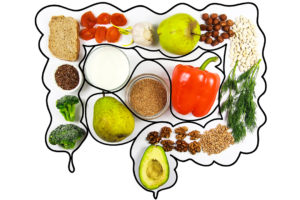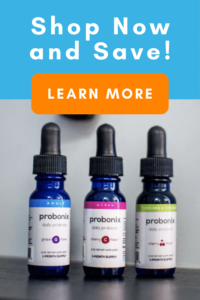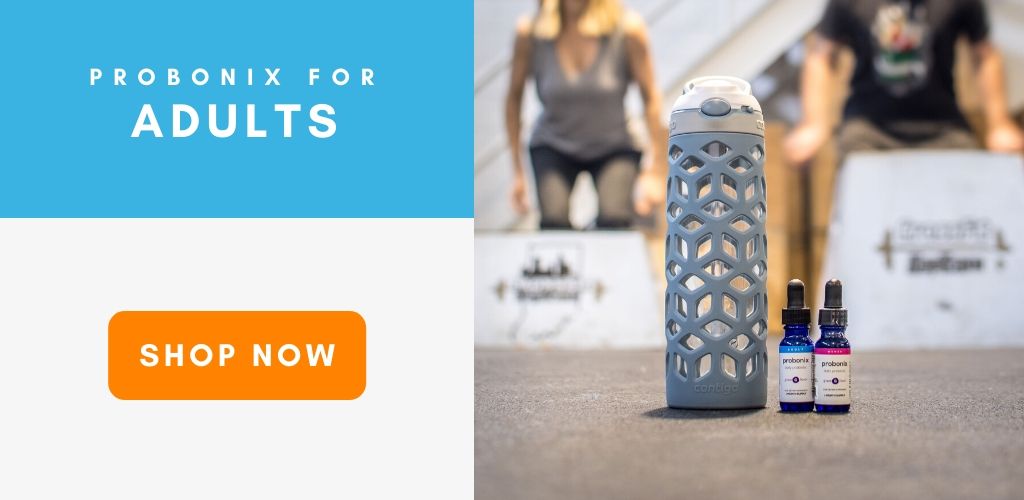
Whether you’re constipated or on day two of your battle against diarrhea, fiber is a common recommendation to deal with bowel issues. It is widely known that fiber can help to smooth out our bowel movements, but there’s much more to it than that. In part 1 of our ‘good foods for gut health’ series, we talked about the many ways that fermented foods can support gut health. In part 2, we’ll tell you why fiber is good for more than pleasant trips to the bathroom.
To better understand what fiber can do for our gut health, let’s start with some basics. Fibers are the parts of plants that can’t be digested. Some fibers are water-soluble. Many soluble fibers offer health benefits like satiating hunger, stabilizing blood glucose levels, and acting as prebiotics for healthy bacteria in the gut. Other fibers are not soluble. These fibers cannot be broken down by the body. Instead, they absorb water. This softens and adds bulk to our stool and reduces the strain on our bowels as it passes through.
We can and should be getting fiber primarily in our diets. Brussel sprouts, broccoli, and leafy greens are fiber-rich vegetables. You can’t go wrong with working as many green vegetables into your diet as possible. Fruits like strawberries, raspberries, blackberries, pomegranates, and oranges are good sources of dietary fiber. If you can find them, fresh passionfruit is the most fiber-rich fruit there is, with avocados not far behind. Barley, oats, quinoa, and other healthy grains are great sources of insoluble fiber. If you’re suffering any kind of irregularity with your bowel movements, a few healthy servings of these grains could be just what you need to get things moving down there again. In terms of raw fiber count, chia seeds are on top of the heap. Dried chia seeds contain almost 10 grams of fiber per ounce. These are some basic foods to work some healthy fiber into your diet, but there’s more to consider than the simple presence or absence of fiber.
Some fiber-rich foods stand out because they contain high quantities of fibers that double as prebiotics. Prebiotic fibers are used as sustenance for healthy bacteria in your gut to grow or better perform their beneficial functions. The Jerusalem artichoke is a fiber-rich vegetable that contains both inulin and fructans prebiotics. Apples aren’t at the top of the fruit list in terms of fiber count, but they contain pectin, an important prebiotic fiber. Bananas contain inulin and potassium, another important nutrient for gut health. Potassium is important for peristalsis, the muscle contractions that move stool through your bowels. Onions and garlic are both full of prebiotic fibers like inulin, fructans, and fructooligosaccharides. Garlic also exhibits antibacterial and antifungal properties that can help keep bad bacterial and other pathogens under control in the gut.
Some foods offer digestive benefits beyond fiber and prebiotics. Almonds, walnuts, and other healthy nuts are good sources of fiber that can satiate hunger and reduce cholesterol levels. They are also rich in essential oils that support a healthy gut lining. Ginger is a fiber-filled food that is known to soothe the GI tract. It does so by encouraging the production of stomach acid and increasing gut motility. Encouraging the production of stomach acid helps to digest food more quickly and effectively. Increasing gut motility increases the rate that the stomach empties and moves food to the intestines. Increased gut motility also helps to reduce indigestion.
Filling your gut with healthy prebiotic fibers is more effective if you have a rich population of healthy bacteria to utilize them. A probiotic supplement like Probonix is a great way to complement a fiber-rich diet and improve your gut health. Probonix helps to populate your gut with healthy bacteria so the prebiotic fibers that you get from your diet can be put to good use. Fiber-rich foods and Probonix are perfect complements to each other. Fiber-rich foods provide you with soluble and insoluble fibers, prebiotics, and nutritional benefits, while Probonix helps to populate your gut with healthy bacteria. They work even better together than they do on their own, so make sure to consider both when looking for ways to improve your gut health.
If you like this, you’d also like:



